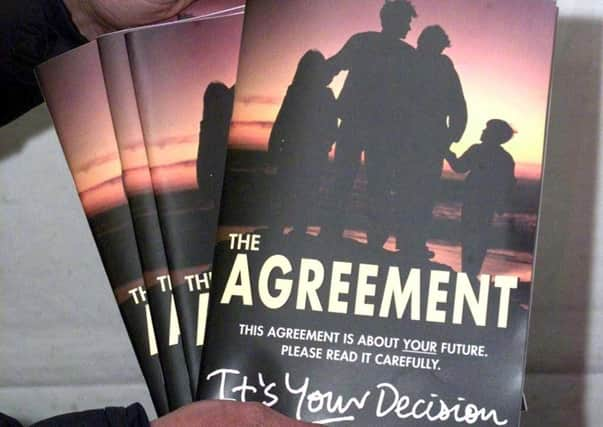The Emma De Souza citizenship campaign shows a nationalist bid to overturn the 1998 Belfast Agreement, not protect it


Even after a senior court (the Upper Tribunal has the same standing as the High Court) ruled that it was inconceivable that the agreement was intended to require automatic British citizenship to be removed from people born in Northern Ireland, nationalist politicians reacted by saying the opposite.
And it wasn’t just nationalists. The Alliance Party issued a contradictory statement in direct defiance of the Tribunal, claiming that the ‘letter and spirit of the Good Friday Agreement regarding identity and citizenship has not been fully respected in domestic law’.
Advertisement
Hide AdAdvertisement
Hide AdYet in the same statement the party called for the UK and Irish governments to sign ‘a new treaty to fully encapsulate the freedom of identity and protection of rights’.


If a new treaty is required that means the existing treaty (the Belfast Agreement) does not provide the ‘rights’ that they claimed it did.
More worryingly, in calling for a bilateral treaty, Alliance is asking the two governments to go over the heads of unionists to impose something to which they did not consent in the Belfast Agreement.
Is it too much to expect nationalists and Alliance to have the humility to accept that they have misunderstood the Belfast Agreement?
Advertisement
Hide AdAdvertisement
Hide AdThat the relegation of British citizenship to a mere choice, as demanded by De Souza, was never agreed, would be unreasonable, and – as the tribunal points out – entirely impracticable?
The answer, unfortunately, is yes: De Souza has already stated that she will appeal the Upper Tribunal decision, and she appears to have political support.
Now that we have such a clear legal ruling, however, the field of debate has fundamentally shifted.
From now on, it will be clear that it is unionists who are defending the Belfast Agreement and nationalists who are campaigning to overturn what was agreed in 1998.
Advertisement
Hide AdAdvertisement
Hide AdThis should be fertile ground for a solid unionist pitch in defence of Northern Ireland’s place within the Union, as affirmed by the Agreement; and in support of shared UK citizenship for all, but with a right for those who want it also to be Irish citizens, in contrast to the nationalist vision of a divided society where we can’t even join together as citizens of the state in which we all live.
J. Martin, Belfast